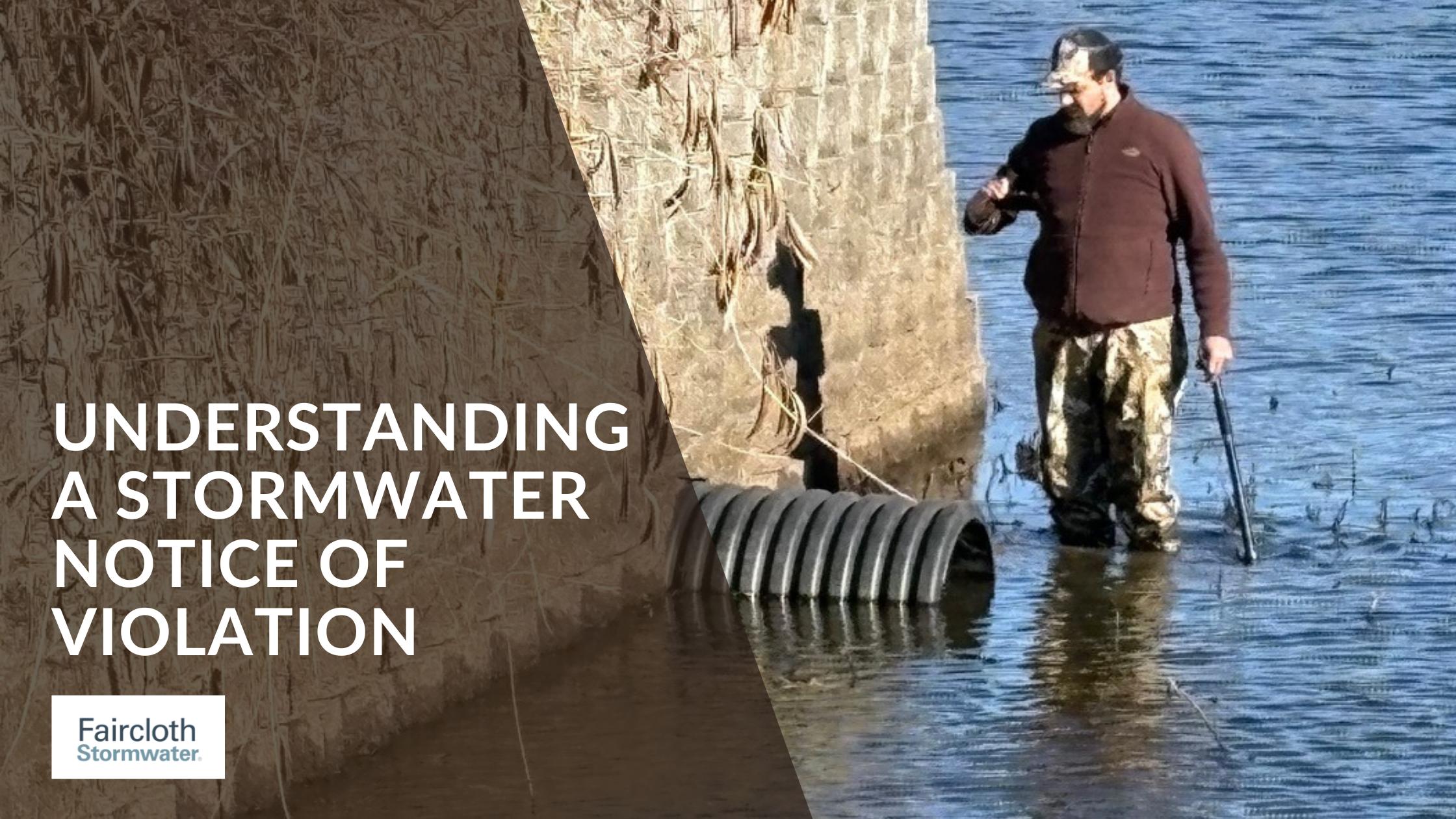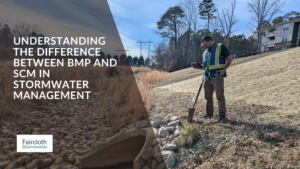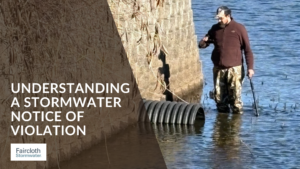Owning or managing a commercial property in North Carolina comes with a myriad of responsibilities, from maintaining the building itself to ensuring the safety and well-being of tenants and visitors. One often overlooked, yet crucial, aspect is stormwater management. While it might seem as simple as rain falling on the ground, improper stormwater management can lead to significant environmental damage and, as many commercial property owners discover, hefty fines. This post will delve into the complexities of stormwater management and what to do if your property receives a Notice of Violation (NOV).
Stormwater Background
Stormwater runoff occurs when precipitation falls on impervious surfaces like roofs, parking lots, and sidewalks. Instead of soaking into the ground, this water flows across the surface, picking up pollutants like oil, chemicals, sediment, and debris along the way. This polluted runoff eventually enters local waterways, impacting water quality, harming aquatic life, and even contributing to flooding. That’s why the EPA has implemented regulations to control stormwater discharge and protect our natural resources.
These regulations often require commercial properties to implement and maintain a plan that meets NPDES Phase I and II requirements. An effective plan outlines the best stormwater compliance measures (SCMs) the property will use to minimize pollution and control runoff. These SCMs can range from simple measures like regular sweeping and proper disposal of hazardous materials to more complex systems like detention ponds, bioswales, and filtration systems. The specific requirements for NPDES and the types of SCMs required will vary depending on the property’s location, size, and type of business.
Receiving A Stormwater Notifiction of Violation
So, what happens when a commercial property fails to comply with these regulations? This is where the dreaded Notice of Violation comes into play. An NOV is an official notification from a local stormwater utility, informing the property owner that they are in violation of stormwater regulations. Receiving an NOV can be a stressful experience, but understanding its implications and taking swift action is crucial.
The NOV will typically detail the specific violations found, which could include a missed inspection or failure to make repairs in a given timeline. It will also outline the steps required to rectify the violations and the timeframe for compliance. Often, the NOV will include potential penalties, which can range from monetary fines to legal action.
How To Respond to a NOV
Ignoring an NOV is never a good idea. Failure to respond or address the violations promptly can lead to escalating penalties and further legal repercussions. The first step upon receiving an NOV is to carefully review the document and understand the specific violations cited. Don’t hesitate to consult with an environmental consultant or attorney specializing in stormwater regulations to fully grasp the implications and develop a comprehensive response plan.
Here’s a breakdown of the steps you should take after receiving a stormwater NOV:
- Acknowledge and Understand: Carefully read the NOV and understand the specific violations. Identify the location of the issues and gather any relevant documentation.
- Seek Expert Advice: Contact a company specializing in stormwater management. They can help you understand the regulations, assess the violations, and develop a compliant solution.
- Develop a Corrective Action Plan: Work with your consultant to create a detailed plan outlining the steps you will take to rectify the violations. This plan should include specific actions, timelines, and responsible parties.
- Implement the Plan: Act quickly to implement the corrective action plan. This might involve repairing or installing new BMPs, updating your SWPPP, or obtaining necessary permits.
- Document Everything: Maintain thorough records of all actions taken, including photos, invoices, and reports. This documentation will be crucial in demonstrating your efforts to comply.
- Communicate with the Agency: Keep the issuing agency informed of your progress. Submit regular updates and documentation as required.
- Prevent Future Violations: Once the violations are addressed, implement ongoing monitoring and maintenance programs to ensure continued compliance and prevent future issues. Regular inspections and employee training are essential components of a robust stormwater management program.
Stormwater Violation Resolution
Receiving a stormwater NOV can be a wake-up call for commercial property owners and managers. By understanding the regulations, acting promptly, and seeking expert advice, you can address the violations, minimize penalties, and protect our precious water resources. Proactive stormwater management is not just a legal obligation; it’s a responsible practice that benefits the environment and the community.
If you don’t know where to start, we can help. Contact us today to start putting a plan together.



